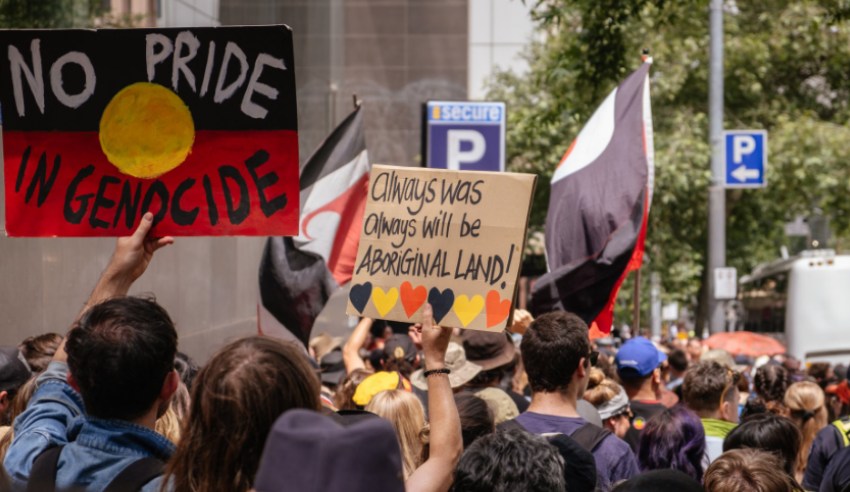An essay by three young lawyers that explored the role legal practitioners can play in addressing the fundamental issues for First Nations people has won the Australian Academy of Law’s Annual Essay Prize and the praise of a former High Court judge.

Law graduates and authors Lillian Burgess, Suvradip Maitra and Giulia Marrama posed a “new theory but an old practice” to address the issues confronting First Nations people. This theory, they wrote in an award-winning essay, is “movement lawyering”, which involves lawyers aligning with an issue and contributing their skills.
Their theory was judged by former High Court judge the Honourable William Gummow AC QC, along with University of New South Wales’ Professor Gabrielle Appleby and Australia’s first Indigenous barrister, Tony McAvoy SC.
Commenting on the winning essay and its movement lawyering theory for change, the judges said: “The authors undertook a rich analysis of the role that movement lawyering has played and can play in the furthering of First Nations interests. Incorporating new research on movement lawyering, as well as deeply engaging with the scholarship, it was in equal parts academically rigorous and practically focused.”
The graduates, who are all currently working as associates to judges of the Supreme Court of Queensland, said that while they are aware their views may not reflect those of the First Nations people of Australia, they argue that the problems they face require a unique legal response that goes beyond the traditional role of a lawyer.
“Movement lawyering … means lawyers must commit to proactive community engagement and expand their work to incorporate the role of translators, facilitators, educators and journalists,” the three authors commented.
Academy of Law president Alan Robertson added that the essay competition is an important part of promoting high standards of legal research: “Each year we set a question which will further this goal and challenge lawyers to focus on important legal issues in need of resolution.”
